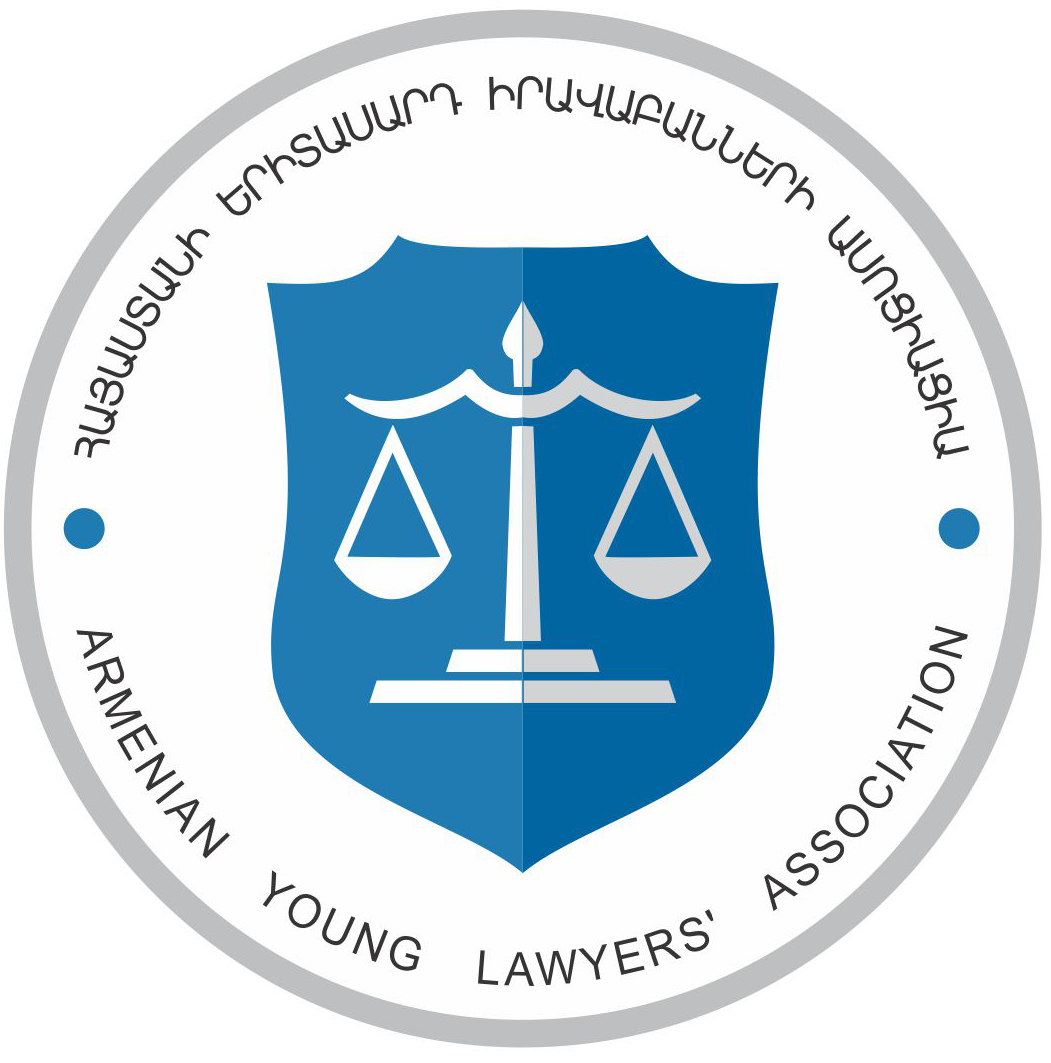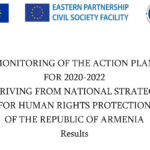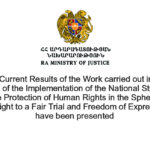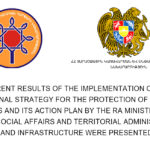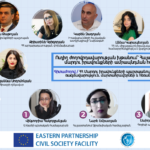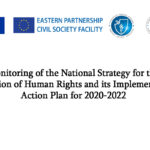Charter
| Compiled on 16.02.2016, and consists of 12 pages. |
Only 2 copies were printed. Copy 1
|
| Approved
by the Decision of the Founding Meeting of the “Armenian Young Lawyers’ Association” Non-Governmental Organization
On “16” February 2016
President of the Organization S. Soghomonyan
|
Registered
by the Central Body of the State Register of Legal Entities of the Republic of Armenia
« » 2016
Number of registration _______________
Number of certificate _______________
Registration number of the taxpayer
_______________
Head of the State Register Agency |
CHARTER
OF THE “ARMENIAN YOUNG LAWYERS’ ASSOCIATION”
NON-GOVERNMENTAL ORGANIZATION
Yerevan 2016
1. GENERAL PROVISIONS
- The “Armenian Young Lawyers’ Association”, a non-governmental organization, hereinafter referred to as “Organization,” is an organization established on the basis of the commonness of its members’ interests and their voluntary will, aimed at the satisfaction of their spiritual and other non-material needs.
- The activities of the Organization are carried out in accordance with the RA Constitution, RA international treaties, RA legislation, and this present Charter.
- The name of the Organization is:
In Armenian: «Հայաստանի Երիտասարդ Իրավաբանների Ասոցիացիա» հասարակական կազմակերպություն, in short: Հայաստանի Երիտասարդ Իրավաբանների Ասոցիացիա, abbreviation: ՀԵԻԱ.
In Russian: Общественная организация «Ассоциация Молодых Юристов Армении», in short: Ассоциация Молодых Юристов Армении, abbreviation: АМЮА.
In English: Non-Governmental Organization “Armenian Young Lawyers’ Association” in short: Armenian Young Lawyers’ Association, abbreviation: AYLA.
- The activities of the Organization are based on the principles of legitimacy, publicity, self-governance, equal rights and voluntarism.
- The Organization operates in the whole territory of the Republic of Armenia. It is also entitled to operate in foreign countries in accordance with the legislation of those countries.
- The Organization is considered to be a legal entity from the time of its state registration. It has a round seal in the Armenian, Russian, and English languages, official documents, and accounts in different banks (both in Armenian dram and foreign currency).
- The Organization has a symbol which is a shield with two shades of blue in the middle, which depicts a white scales a scale with its pans on equal levels, and the shield is taken in a circle of gray color. Above the shield, along the perimeter, it is written in black color Հայաստանի Երիտասարդ Իրավաբանների Ասոցիացիա and below the shield, along the perimeter, it is written in black color Armenian Young Lawyers’ Association. The logo is attached to this Charter.
- The Organization has all the rights prescribed for a legal entity by the RA legislation and bears the respective duties.
- The Organization can present proposals deriving from its Charter goals and objectives to the RA state bodies.
- The Organization cooperates with RA state bodies and non-governmental organizations, foreign and international organizations, as well as individuals.
- The Organization has the right to establish international relations, affiliate with international non-governmental and non-profit legal organizations and sign agreements and contracts with foreign and international organizations.
- The Organization can open media outlets in the order prescribed by the RA legislation and spread information on its activities via mass media.
- The Organization has the right to carry out entrepreneurial activities in the order prescribed by the RA legislation.
- The address of the Organization is: 7 Nalbandyan Str., Suite 2, Yerevan, Republic of Armenia.
- THE GOAL AND OBJECTIVES OF THE ORGANIZATION
- The goal of the Organization is join the efforts and potential of the members and supporters of the Organization and to direct them to promote the establishment and strengthening of Armenia as a sovereign, democratic, legal and social state.
- The subject and objectives of the Organization are:
- contributing to raising the level of citizens’ legal awareness, legal culture and legal perception through propaganda of laws and legal knowledge among citizens,
- contributing to the development of the legal science, the study and development of RA legislation,
- contributing to the implementation of judicial reforms in the Republic of Armenia,
- contributing to the protection of human rights and formation of the civil society in the Republic of Armenia,
- contributing to the reduction of corruption, increase of the level of anti-corruption perception among the citizens, introduction and development of anti-corruption structures and institutions in the Republic of Armenia, transparency and accountability of the legislative, judicial and executive branches, implementation of public monitoring and control programs in the above-mentioned spheres,
- protecting the rights of socially vulnerable groups, women, disabled persons, refugees, asylum seekers, freedom fighters, servicemen, citizens affected by corruption, whistleblowers, youth, including students, providing them with the necessary free legal services,
- contributing to the establishment and development of free legal advice and information centers in the Republic of Armenia, as well as the establishment of a network of organizations providing free legal aid, the development and expansion of a network of free legal aid organizations,
- contributing to the consolidation and development of cooperation between legal, human rights, anti-corruption and youth organizations in the Republic of Armenia,
- contributing to the establishment, expansion and development of legal clinics in the Republic of Armenia,
- contributing to the establishment and development of the Advocacy Institute in the Republic of Armenia,
- contributing to the development of an economy based on the free market relations, in particular, to increase the level of legal knowledge of small and medium-sized businesses and entrepreneurs, to provide them with appropriate legal assistance, if provided by the projects,
- contributing to the efficient organization of the learning processes in law schools, improving the professional and integrity capacities of law students, lawyers, and individuals interested in jurisprudence, and improving their related skills by organizing training courses, schools, seminars, scientific conferences, moot court competitions, competitions, and other events,
- establishing and developing a legal training and information center equipped with modern legal literature and technologies for the members of the Organization; protecting the rights of the members of the Organization,
- creating a database for young lawyers and assisting the young lawyers in finding a legal career,
- contributing to the restoration, preservation, study and dissemination of the historical legal values of the Armenian nation,
- co-operating with the lawyers and legal organizations of Diaspora and foreign countries,
- contributing to reforms and developments in electoral systems; carrying out advocacy campaigns with the aim of increasing legal knowledge on this area among the population; and undertaking observation missions during elections of representative bodies and referenda in order to improve the legislation, ensure transparency and legality of the electoral processes;
- contributing to the reinforcement of relations and dialogue between state bodies, local governing bodies and civil society in the RA; assisting in the implementation of community projects, including public participation and oversight projects and to organize public hearings with the participation of local self-government representatives and the population,
- contributing to the deepening and development of cooperation between non-governmental organizations.
- MEMBERSHIP, PROCEDURE OF ADMISSION AND WITHDRAWAL, RIGHTS AND RESPONSIBILITIES/DUTIES OF THE MEMBERS
- Any lawyer, law student or person from 16 to 35 years who, abides this Charter, by his/her activities contributes to the implementation of the statutory goals of the organization, pays entrance and membership fees, can become a member of the Organization.
- A teenager between the ages of sixteen and eighteen, if not fully recognized in accordance with the law, may join the Organization on the basis of his/her application with the written consent of the legal representative
- The decision to admit a new member to the Organization according to his/her written application is adopted by the Organization’s Board by the recommendation of at least two members of the Board.
- The Organization keeps records of its members and periodically updates their data. The procedure and conditions by which records are to be kept is determined by the Board of the Organization.
- The members of the Organization pay an entrance fee and membership fees. The Board of the Organization determines the amount of the fees and the form of their payment.
- Withdrawal from membership of the Organization is either carried out upon the member’s written application or by the decision of the Board of the Organization by dismissal of the member for either failure to perform his/her duties or failure to perform them in a proper manner as defined by point 3.8 of this Charter.
- The member of the Organization has the right to:
- elect and be elected to the governing bodies of the Organization;
- bring suggestions, remarks, and practical programs referring to the plans and activities of the Organization to the discussion of the governing bodies of the Organization;
- freely express his/her personal opinion;
- obtain legal, financial, technical, informational, and other types of assistance from the Organization;
- be aware of the work carried out by the Organization;
- participate in sessions of the General Assembly of the Organization if they are held with the participation of delegates and he/she hasn’t been elected as a delegate;
- have access to the documents with records on the activities of the Organization’s bodies and get copies of the decisions adopted;
- appeal the decisions of the Organization’s bodies in written form in accordance with the principle of superiority;
- dispute the decisions of the Organization’s body, including the decisions of the supreme body of the Organization in court in the order defined by the RA Law;
- and freely terminate his/her membership in the Organization.
- The member of the Organization has the responsibility to:
- pay entrance and membership fees in the amount and manner prescribed;
- participate and assist in the activities of the Organization;
- uphold the reputation of the Organization by his/her activities and conduct and refrain from acting on behalf of the Organization without the authorization of the competent body of the Organization;
- act in accordance with the Charter of the Organization and abide by the requirements of the Organization’s Charter and the decisions of its governing bodies.
- The Organization may award the title of Honorary President and Honorary Member of the Organization. The title of Honorary President of the Organization is awarded by the decision of the Board of the Organization to a well-known figure having at least a 20 years of contribution to the development of the community of young lawyers and a great reputation in the field. The Honorary President of the Organization is the Senior Adviser of the Board of the Organization, at the invitation of the Board, participates in the meetings of the Board with the right of consultative vote. Apart from the above, the Honorary President of the Organization has no other rights or responsibilities. The honorary members of the Organization have no rights and responsibilities.
- The members as well as the associate and honorary members of the Organization have no right of share in the property of the Organization.
- The Board of the Organization is entitled to both support the members of the Organization and impose disciplinary action on them in case they violate the Charter provisions. The form of support and discipline is determined by the Board of the Organization.
- THE STRUCTURE OF THE ORGANIZATION
- The General Assembly, the Board, and the President make up the governing structure of the Organization.
- Supervision of the Organization’s activities is carried out by the General Assembly of the Organization.
- The governing bodies of the Organization are elected.
- Persons over the age of 18 may become members of the governing bodies of the Organization.
- The supreme body of the Organization is the General Assembly of its members, which owns the right of final decision on any matter concerning the management and activities of the Organization.
The General Assembly is convened by the President of the Organization once every two years.
- If the number of the members of the Organization exceeds one-hundred then representative delegates selected by the members can participate in the General Assembly session. Either every member chooses one delegate or there is a quota set by the Board. The Board chooses the date, time, and place of holding the General Assembly session, as well as the preliminary agenda for the session and notifies the members of the Organization and other institutions about it not later than 20 (twenty) days prior to the session via ordered letter, e-mail, mass media or through other channels defined by the law.
- A special session of the Organization is convened by the President of the Organization based on the motivated decision of 1/3 of the total number of the members of the Organization within fourteen calendar days. The agendas of the special sessions are prepared by the convener.
If the President refuses to summon a special session then it is summoned by the party requesting the session. The agenda of the session is the resignation of the governing bodies of the Organization and election of new governing bodies. If the session is to be held with the participation of delegates and it is impossible to select delegates within the period specified then the delegates of the previous session are invited to this one. The Board sets the date, time, and place of the special session, as well as the initial version of the agenda and notifies the members of the Organization and other institutions about it not later than four days prior to the session via ordered letter, e-mail, mass media or through other channels defined by the law.
- The General Assembly of the Organization:
- approves the Charter of the Organization, introduces changes in it and/or approves the new Charter;
- determines the number of the members of the Board of the Organization, chooses the members of the Organization for a two-year term, changes the composition of the Board, and prematurely terminates the authorities of the Board members: except for the first Board, which members are elected for a term of one year;
- elects for a two years term the President, Vice President and Responsible Secretary of the Organization, who when appointed, constitute the part of the Board and act as the President, Vice President and Responsible Secretary of the Board, as well as prematurely terminates their authority; except for the first President, the first Vice-President, the first Responsible Secretary, who are elected for a term of one year;
- discusses and confirms the reports made by the Board and the President of the Organization, confirms the reports on the activities of the Organization and the use of its property;
- approves reorganization or dissolution of the Organization, confirms the transfer act of the Organization, or the separating balance, excepts the reorganization or dissolution according to court decision;
The General Assembly may discuss issues and make decisions if more than half of all the members of the organization or all the delegates to the General Assembly participate. Adoption of any decision on the items of agenda at the session of the General Assembly requires a majority affirmative vote of the members present, provided that more than one half of the eligible votes be present. The General Assembly adopts other resolutions by the simple majority of votes of delegates participating at the General Assembly.
- The Board of the Organization:
- is considered to be the governing body of the Organization in-between the General Assemblies,
- discusses and adopts decisions on any issue in respect of the Organization’s activities, except the issues that are within the competence of the General Assembly and the President of the Organization,
- prepares the General Assemblies of the Organization, determines the quota for the delegates of the General Assembly in accordance with the number of the members of the Organization, organizes the election of the delegates of the General Assembly at least thirty days before convening the General Assembly,
- confirms the three year strategic plan of the Organization’s activities, evaluates and monitors the process of implementation,
- makes decisions on establishing or dissolving separate subdivisions, representative offices, and branches, committees, sections, departments, clubs and working groups, approves their statutes, as well as rules and regulations of their activities, which cannot contradict to this Charter, appoints and dismisses their heads, authorizes the heads of brunches, representative offices and units,
- makes decisions on establishing commercial companies or participating in them, appoints and dismisses their managers,
- makes decisions on establishing mass media, appoints and dismisses their managers,
- makes decisions on establishing funds, appoints and dismisses their managers,
- makes decisions on establishing unions of non-commercial legal entities and on membership to these unions, as well as on membership to international organizations,
- makes decisions on affiliation in and withdrawal from the membership of the Organization; determines the amount and the form of payment of membership and entrance fees; defines the procedure and conditions for registering the members of the Organization, as well as the procedure for applying incentives and penalties to the members of the Organization,
- approves the staff list, wage rates, and the rules and regulations of the staff of the Organization, which cannot contradict to this Charter,
- approves the annual plans of the main events and activities of the Organization (including grant projects) and oversees the process of their implementation,
- approves in advance the decisions of the President of the Organization on the acquisition, possession, use, disposal, including alienation and write off of the property worth more than 1,000,000 (one million) drams;
- determines the form of payment of the individuals involved in the governing bodies of the Organization;
- if necessary, appoints an Executive Director of the Organization, who may not be a member of Board of the Organization.
- The session of the Board may discuss questions and make decisions if at least 1/3 of the Board members are present at the session. The decisions are adopted by the simple majority vote of the members participating in the Board session. Participation of the President of the Board in the session is mandatory. The decisions adopted by the Board in his/her absence are invalid.
- The regular sessions of the Board are convened once every three months. A special session of the Board can be convened at the written request of at least 2/3 of the total number of members of the Board, by the President of the Organization, or immediately by the President of the Organization. Expanded sessions of the Board with the participation of the heads of the separate subdivisions of the Organization, as well as other members of the Organization can be convened.
- During the course of the activities of the Organization, any question that is not reserved by the law and this Charter to the exclusive authority of the supreme body and is not regulated by this Charter is resolved by the Board of the Organization.
- The President of the Organization:
- governs the work of the Board of the Organization and acts as the governing body of the Organization in the period between the sessions of the Board and performs current financial activities of the Organization;
- ensures the implementation of the decisions and recommendations adopted by the General Assembly and the Board of the Organization, adopts decisions, signs orders and instructions in addition to other necessary documents under the framework of his competence;
- employs and dismisses the permanent and contractual employees of the organization, including the managers and employees working both on grant and non-grant projects; employs and dismisses the Chief Accountant of the Organization;
- presents reports on activities of himself/herself and of the Board at General Assembly sessions;
- makes decisions on all issues pertaining to activities of the Organization, except for those which are the authority of the General Assembly and the Board of the Organization;
- acts on behalf of the organization without power of attorney, manages the property and financial means of the organization (including grant funds and membership fees), signs authorizations, is authorized to open various types of bank accounts, negotiates on behalf of the organization, signs contracts and agreements, signs documents adopted by the General Assembly and the Board of the Organization;
- presides over the sessions of the General Assembly and the Board of the Organization and is entitled to authorize another member of the organization to preside over the sessions of the General Assembly;
- summons and convenes regular and special sessions of the General Assembly and the Board of the Organization;
- can reassign authorities reserved for the President of the Organization to the Vice Presidents, the Secretary of the Board, the members of the Board, and the Executive Director in the scope of this Charter;
- adopts decisions on purchasing, possessing, using, and managing property of any type and amount, including alienating and writing off such property, in compliance with point 4.9 (m) of this Charter.
- exercises the other authorities granted to him by the General Assembly and the Board of the Organization.
- If necessary, the Board of the Organization appoints an Executive Director to oversee the Organization’s daily activities.
- The Executive Director:
- is assigned and dismissed by the President of the Organization;
- is accountable to the President of the Organization;
- acts upon the written authorization or recommendation of the President of the Organization.
- While appointing an Executive Director an employment contract is signed between the President of the Organization and the Executive Director in the order prescribed by the RA legislation (this provision is valid if salary payment for the Executive Director is foreseen).
- The Vice President of the Organization:
- Coordinates the external relations, fundraising activities of the Organization and the implemented projects;
- Performs the duties defined by the President of the Organization;
- Performs the duties of the President of the Organization in his/her absence by the order of the President of the Organization;
4.18. The Secretary of the Board of the Organization:
- keeps records of the sessions of the General Assembly and the Board of the Organization;
- signs the records of the sessions of the General Assembly and the Board of the Organization;
- carries out separate authorities granted to him/her by the President of the Organization.
4.19. The Organization has branches in the Republic of Armenia in accordance with procedures provided by the legislation of the Republic of Armenia.
- THE SOURCES OF PROPERTY OF THE ORGANIZATION AND THE PROCEDURE OF UTILIZATION
- The material and financial means of the organization are collected through entrance fees, membership fees, grants, and donations from the private sector, local, foreign, and international organizations, individual citizens, as well as other sources of funds unless otherwise prohibited by the legislation of the Republic of Armenia.
- The Organization can own any property not forbidden by the legislation regarding property rights in the Republic of Armenia. The properties belonging to the Organization are to be used exclusively for the purposes of accomplishing the goals and objectives as defined in the Charter of this Organization.
- Individuals involved in the governing bodies of the Organization may be compensated by the organization at the rate and form determined by the President of the Organization.
- REORGANIZATION AND DISSOLUTION OF THE ORGANIZATION
- Reorganization and dissolution of the Organization is done in accordance with the legislation of the Republic of Armenia.
- The organization may be dissolved by the resolution of the General Assembly or through the court.
- In the event that the Organization decides to dissolve:
- a Dissolution Committee is formed and terms of the dissolution are determined;
- after full satisfaction of all claims of creditors and fulfilling all obligatory debts in the order prescribed by the law, the Dissolution Committee uses the remaining properties for the purpose of accomplishing the Charter goals and objectives of the Organization in the order prescribed by the governing body that has made the decision on the dissolution, in case of its impossibility, it is transferred to the state budget, and in case of a dispute, and in the event of any disputes, the issues shall be resolved through the court.
The Logo of the “Armenian Young Lawyers’ Association” Non-Governmental Organization

